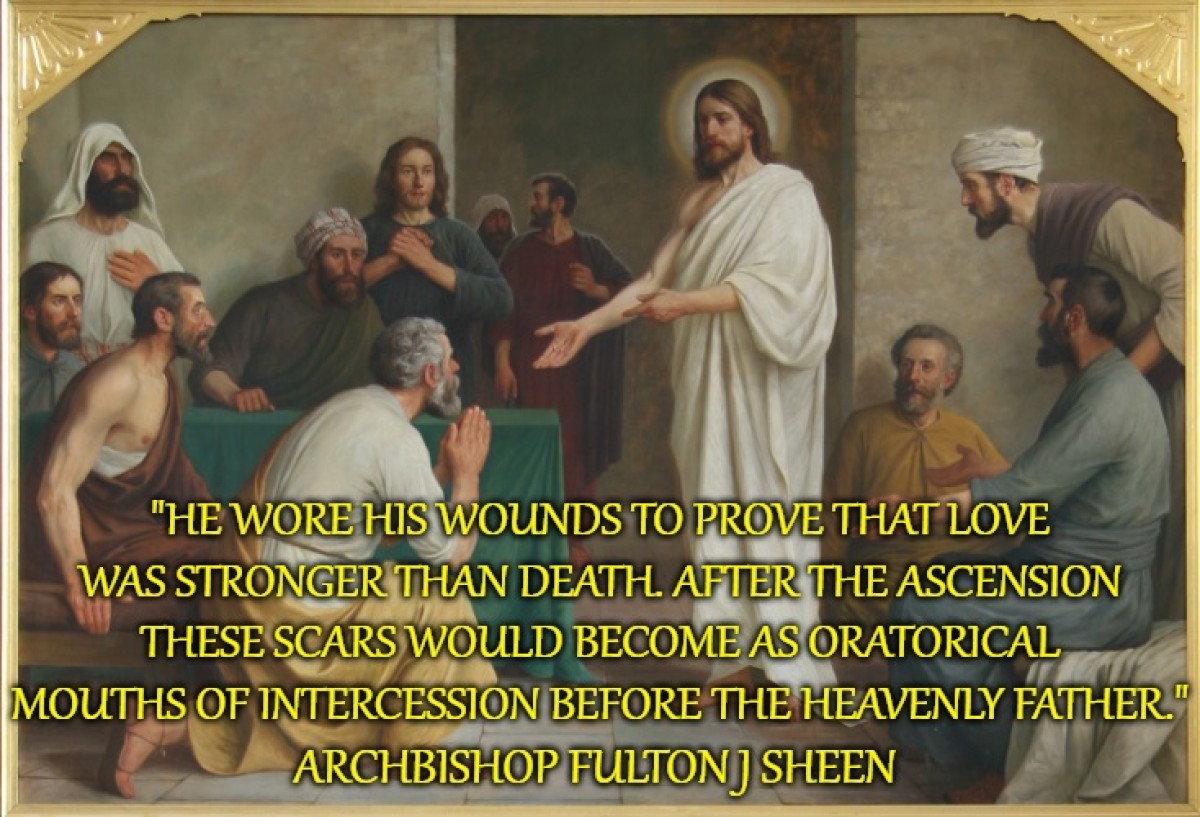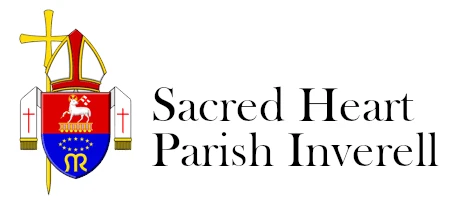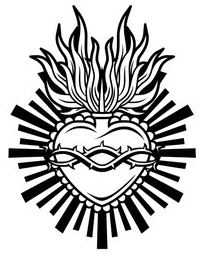3rd Sunday of Easter (Year B) - 14 April
14th April 2024

“Where have Your love, Your mercy, Your compassion shone out more luminously than in Your wounds, sweet, gentle Lord of mercy?” - St Bernard of Clairvaux
A reflection on today's Gospel by the Venerable Archbishop Fulton J Sheen:
"Peace is the fruit of justice. Only when the injustice of sin against God had been requited could there be an affirmation of true peace. Peace is the tranquillity of order, not tranquillity alone; for robbers can be tranquil in the possession of their spoils. Peace also implies order, the subordination of the body to the soul, of the senses to reason, and of the creature to the Creator. Isaiah said there was no peace to the wicked because they are at enmity with themselves, with one another, and with God.
"Now the Risen Christ stood among them [the apostles] as the new Melchisedech, the Prince of Peace. Three times after His Resurrection, He gave the solemn benediction of peace. The first was while the Apostles were terrified and frightened; the second, after He gave proof of His Resurrection; and the third, a week later when Thomas was with them.
"The Apostles believed at first that they had seen a Spirit; despite the words of the women, the testimony of the disciples of Emmaus, the empty sepulchre, the angelical vision, and the recital of Peter of his interview with the Risen One. His Presence, they admitted to themselves, could be accounted for in no natural way, since the doors were barred. Reproving them for their unbelief, as He did the disciples of Emmaus, He said to them: What, are you dismayed? Whence come these surmises in your hearts? (Luke 24:38)
"He showed them His hands and His feet, which had been pierced with nails on the Cross, then His side, which had been opened with a lance, saying to them: Touch Me, and look; a Spirit has not flesh and bones, as you see that I have. (Luke 24:39)
"It is very likely that the incredulous Apostles actually touched the Body of Christ; this might explain why Thomas later demanded such a sign; he would not be inferior to others. John, who had leaned on His breast the night of the Last Supper, was particularly interested in the side or heart. He never forgot that touching scene; for, later on he wrote: Our message concerns that Word, Who is Life, What He was from the first, What we have heard about Him, What our own eyes have seen of Him What it was that met our gaze, and the touch of our hands. (I John 1:1) John too would remember it when he wrote his Apocalypse where he described the sacred humanity of the Lord enthroned and adored in heaven: A Lamb standing upright, yet slain (as I thought), in sacrifice. (Apocalypse 5:6)
"It was thus He would be recognized as One Crucified though now in glory, Prince and Lord. It was not that the cruel wounds were to be a reminder of the cruelty of men, but rather that by pain and sorrow, Redemption had been wrought. If the scars had been removed, men might have forgotten that there was a sacrifice, and that He was both Priest and Victim. His argument was that the Body that he showed them was the same that was born of the Virgin Mary, nailed to the Cross and laid in a grave by Joseph of Arimathea. But It had properties which It did not possess before.
"Peter, James, and John had seen Him transfigured when His garments were whiter than snow, but the rest of the disciples had only seen Him as a Man of Sorrow. This was their first gaze upon a risen and glorious Lord. These nail prints, this pierced side, these were the unmistakable scars of battle against sin and evil. As many a soldier looks upon the wounds he received in battle not as a disfigurement, but as a trophy of honour, so He wore His wounds to prove that love was stronger than death. After the Ascension these scars would become as oratorical mouths of intercession before the Heavenly Father; scars that He would bear on the last day to judge the living and the dead. In an old legend it is said that Satan appeared to a saint and said: 'I am the Christ' the saint confounded him by asking: 'Where are the marks of nails?'
"After raising the daughter of Jairus, He ordered that food should be given her; after the resurrection of Lazarus, Lazarus took food with Him; now, after His own Resurrection, He ate with His Apostles. Thus He would convince them that it was the same living Body which they had seen and touched and felt; but it was at the same time a Body that was glorified. It had no wounds as signs of weakness, but rather as glorious scars of victory. This glorified Body ate not as the plant draws in moisture from the earth because of need but as the sun imbibes the same from power. He had given some indications of what this glorified nature of His would be like in the Transfiguration, when Moses and Elijah spoke with Him about His death. That was a promise and a pledge that corruption would put on incorruption, the mortal would put on immortality, and death be swallowed up in life."
(Life of Christ)
Anima Christi (St Ignatius of Loyola)
Soul of Christ, sanctify me. Body of Christ, save me. Blood of Christ, inebriate me. Water from the side of Christ, wash me. Passion of Christ, strengthen me. O Good Jesus, hear me. Within Thy wounds hide me. Never let me be separated from Thee. From the evil one protect me. At the hour of my death, call me; and bid me come to Thee. That with Thy saints and angels, I may praise Thee forever and ever. Amen. 🙏💖💐
Easter Blessing Prayer for Families
Almighty God, who through your only-begotten Son Jesus Christ overcame death and opened to us the gate of everlasting life: Grant that we, who celebrate with joy the day of the Lord’s resurrection, may be raised from the death of sin by your life-giving Spirit; through Jesus Christ our Lord, who lives and reigns with you and the Holy Spirit, one God, now and forever. Amen. 🙏💖💐
Month of the Holy Eucharist
The month of the Holy Eucharist is a perfect opportunity to reflect upon the wonderous gift given to us by Christ. Even if we had the purity of an Angel and the holiness of St John the Baptist, we would still not be worthy to receive or to touch the most Holy Eucharist. No human being has merited to be able to consecrate and touch the Sacrament of Christ, or receive the Bread of Angels as food. This is a tremendous mystery, and great is the dignity conferred on priests, which is not granted to the Angels. For only priests, validly ordained in the Church, have this power of offering Holy Mass and consecrating the Body of Christ. The priest stands in the place of Christ, using God’s word according to His command and institution; but God Himself is the principal Author and unseen Worker in this Sacrament. Therefore, we should believe Almighty God more concerning this most wonderful Sacrament than what our own senses or any visible sign indicates. With what fear and reverence we should approach this great gift. We should examine our conscience carefully and, to the best of our ability, cleanse and purify it by sincere contrition and a humble confession, so that we may not be aware of anything to fill us with remorse, or prevent our free approach to God.


